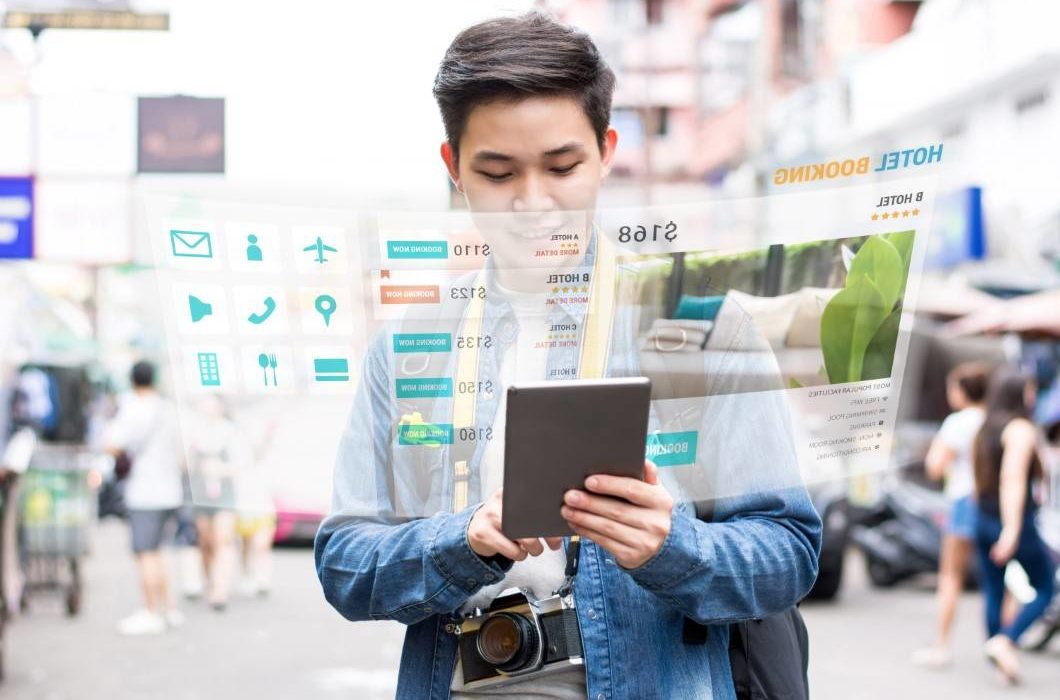
You might also like:
We are faster and we move more often, we live in a less polluted world and often we can also save or live experiences that, only a few years ago, we would never have imagined. Above all, we all move with more confidence in ourselves. All this thanks to an increasingly integrated relationship between tourism and technology, which has changed this sector in a thousand different ways. Tourism-Review presents some of the effects of technology on tourism.
Mobile apps
Smartphones are one of the main parts of this development. Today, we use them to buy and show airline tickets at the airport. With them, we book a Uber car to reach the city center from the airport. And based on them, some of us also choose where to go on vacation.
The importance of smartphones and photography apps has led to the development of otherwise unknown tourist areas but also a general tendency for airports, airlines, and hotels to offer increasingly smartphone-oriented services. This includes Wi-Fi on flights, charger sockets or the highly innovative payment systems via smartphones.
Faster and safer with biometrics
The inclusion of biometric recognition systems in the main airports of the world, on the basis of the eye or fingerprints, has made every trip extremely safer. The Atlanta airport and the Delta airline company have even started an experimental project thanks to which it is possible to travel without documents, with biometric recognition only. This is a solution that will save us up to 9 minutes of time in the future.

Fewer hotels, more private homes
The sharing economy is booming. Thanks to apps like Airbnb one can book different accommodation solutions, from the cheapest to the most luxurious ones, to satisfy every need. In addition to the houses, one can also book the most varied experiences made available by the locals, to experience the journey 100%.
Moreover, with a blue-tooth speaker, for example, one can listen to his own music and feel at home even in a caravan in the desert. In fact, these are products that offer optimal quality with a minimum footprint, also suitable to take to the beach thanks to water resistance. And with blue-tooth headphones, one can go for a run or simply a walk, without giving up the chance to listen to his favorite songs.
Lower prices, higher performance
Nowadays it is possible to manage everything remotely, even from countries whose cost of living is lower than the average of western countries. Moreover, and also, for this reason, we are witnessing the growing diffusion of tourism operators, who have not disappeared as one might believe but have replaced the traditional ones.
All this has led to a general lowering of prices, combined with an expansion of the offer. On the one hand, competition favors the consumer. On the other hand, the possibility of spreading the most luxurious travel experiences via the web has made them attractive to a wider audience and always pushes the luxury market further. Most importantly, the dissemination of review sites and social networks has forced operators to take care of all the phases of the tourist experience. In this way, moreover, the risk of fraud has been reduced to a minimum.
Car rentals with GPS
The expansion of the GPS system, now no longer integrated only in navigators but also in smartphones, tablets and smartwatches, has produced a renewed love for car travel. This is also demonstrated by the growing popularity of car rentals, now also included in offers of airlines such as Ryanair.
The awareness of practically never losing oneself, of being able to send one’s exact position in case of need of help, and ever more detailed and tourism-oriented maps, have led people to abandon traditional habits to explore new paths and new ways to visit a destination.

However, the most striking effect of the positive relationship between technology and tourism is certainly the diversification of the proposals. For years tourism almost always meant travelling to a hotel near the sea, in the mountains or a city of art. The most popular destinations remained the same for several years and players in the industry did not have to try too hard to attract customers.
But things have changed, and people have begun to choose how to travel, as well as where. They save paper by showing the boarding document on their smartphones, listen to their podcasts anywhere with blue-tooth headphones, find the most hidden coves thanks to the GPS and, surely, they are more satisfied as a whole.
Source: tourism-review.com
